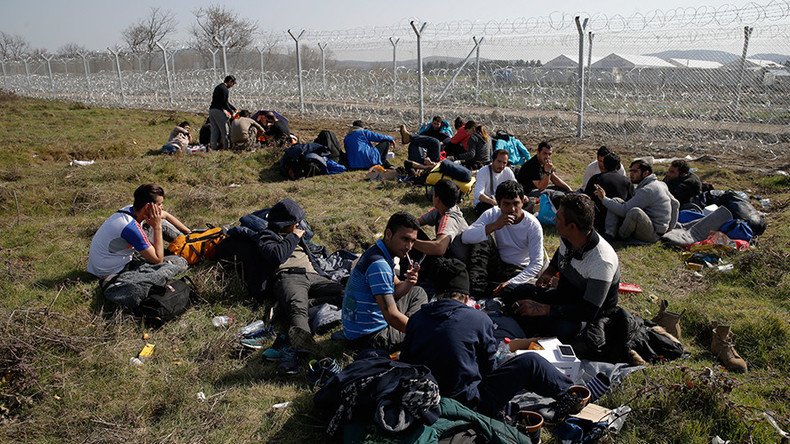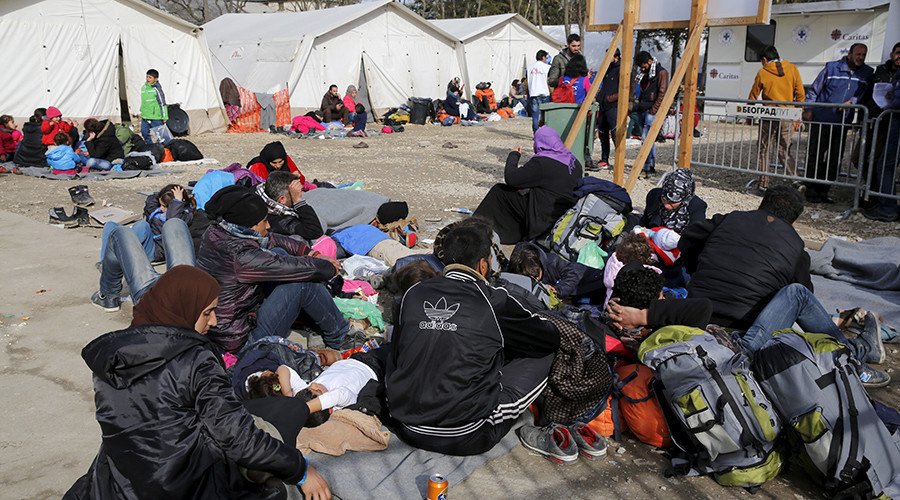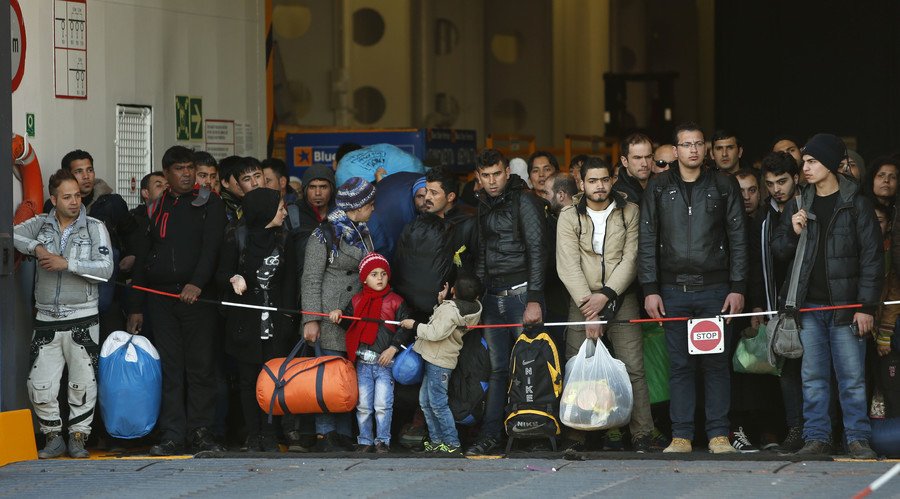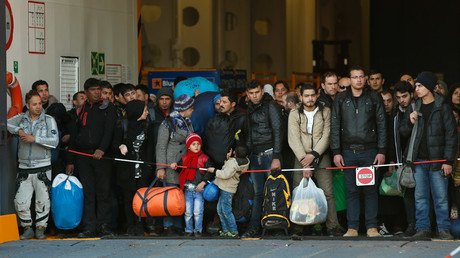Greece removes refugees from Macedonia border

Greece has started to remove refugees from its border with Macedonia on Tuesday, after the former Yugoslav republic closed its frontier at the weekend. Greece is being saturated with migrants, with almost 100,000 arriving on its islands in 2016.
The Greek police started to remove migrants when a bottleneck began to appear at a border shared between Greece and the Former Yugoslav Republic of Macedonia after Macedonian authorities closed off border crossings into the country.
The refugees have been waiting in the Idomeni area of northern Greece, but have been prevented from crossing the border into Macedonia and continuing their journey toward northern Europe, after the Macedonian authorities demanded extra documentation for those seeking entry.
There were around 1,200 people at Idomeni, the vast majority of whom are from Afghanistan, according to Reuters. They were met by police and empty buses and are expected to be taken to relocation camps within Greece.

The International Organization for Migration (IOM) stated on Tuesday that almost 100,000 migrants have landed on Greece’s islands since the start of 2016. After landing on Greek soil, the refugees are subsequently ferried to ports on the mainland.
"It's a difficult management exercise. I don't know if the planning is adequate. The flows are increasing, more ships are coming," Piraeus Mayor Yannis Moralis told Mega TV, according to Reuters. Piraeus, near Athens, is Greece’s major port.
Macedonia followed the lead of countries further up the Balkans migration route into Western Europe in shutting its borders, after Austria, Slovenia and Serbia had blocked crossings for those without the necessary documentation.
"The authorities of the Former Yugoslav Republic of Macedonia informed us that, beginning at dawn Sunday, they no longer accept Afghan refugees because the same problem exists at their border with Serbia," Petros Tanos, spokesman for Greek police's Central Macedonia division, told AP.
This led to Greek migration minister Yannis Mouzalas slamming neighbors for not taking responsibility for the crisis and looking to shirk the problem.

"Not only have Visegrad countries not taken in one refugee, they didn't even send a blanket or a tent," he told the Greek parliament’s TV channel as he referred to the Czech Republic, Poland, Hungary and Slovakia.
Greece was criticized in February by the EU for not doing enough to stem the flow of migrants into Europe. There was even the threat of kicking Athens out of the Schengen agreement.
"It is of utmost importance that Greece addresses the issues identified in the report adopted by the Commission as a matter of priority and urgency," said a statement from the EU. “The action recommended covers areas such as registration procedures, sea border surveillance, border check procedures, risk analyses, human resources and training, infrastructure and equipment and international cooperation.”
A report compiled by the EU Commission has accused Athens of failing to register and fingerprint incomers, thus letting them pass easily on to target destinations in northern Europe.
The ultimatum will give Greece just one month to devise new border control measures, with their effectiveness assessed at the end of the three-month trial period.
“Greece has taken a number of measures to deal with the situation, but given the scale of the situation, further efforts are needed. The overall functioning of the Schengen area is at serious risk,” said a statement on the European Council website.
The Greek government in Athens has promised to open more refugee centers on the islands of Chios, Leros, Lesbos and Samos to help tackle the crisis. However, this has not gone down well with locals living on the islands.
In February, police had to fire tear gas at protesters on the Greek island of Kos, where several thousand people rallied against the construction of a refugee facility.













